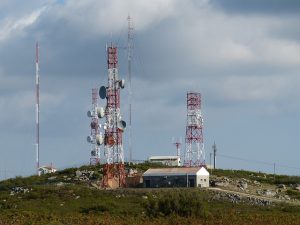I’m going to attempt to comment the best I can on this.
Firstly – from Liquid’s position – we have an open, published, transparent peering policy – it basically says – we will peer openly, provided that basic conditions are met.
That document can be read at www.liquidtelecom.net/peering_policy – and is as transparent as it can be.
Now, there are also challenges relating to peering – and most of them are not actually contractual – they are technical. We have seen many times where the technical configurations still cause traffic to flow via much longer paths because of the way the BGP announcements are done – where we see this – we attempt to talk to partners to get it rectified – and sometimes succeed – but with literally hundreds of thousands of routes in the routing table – problems like these can take time to detect and be resolved.
Secondly – we have seen a number of ISP’s that have a default action when problems occur of turning off the peering – rather than rectifying the problem – and it can take time to get those peering sessions re-established – we do our best ?
Thirdly – while Liquid and most of the other Kenyan players do have open peering policies – and I congratulate all of them on that – this is not always the case with the larger international players. The content providers (Google and others) will peer openly – Tier-1 ISP’s typically will not – and where they do – the amount of traffic from the tier-1 providers is actually pretty low – most of the content comes from the content providers (Google for example accounts for a massive percentage of the traffic), and these content providers very often do not have presence in Nairobi. In fact – there is one content provider who is in the country but they only peer in Mombasa – at a non-neutral location – and backhaul cost between Nairobi and Mombasa costs money.
Obviously from our position though – we will continue to attempt to peer – and improve the peering relationships – and as far as I know – we are currently Africa’s most peered network – a position we are proud of – and I don’t believe that the peering issues you are referring to are related to the IXP or the lack of willingness by Kenyan IXP’s to peer – I believe they come down to a the issues of technical skill, maintenance of peering connections and a host of other factors internal to ISP’s.
As regards the question of peering at 200G – peering at gigabit and 10gigabit speeds is relatively cost effective – peering at 100gig speeds currently doesn’t make economic sense while the traffic demand isn’t there and the costs are what they are (100gig equipment is *very* costly, where even the optics are running into thousands of dollars per side)
Anyway – that’s my comment
Andrew Alston
Liquid Telecommunications – Group Head of IP Strategy
From: kictanet [mailto:kictanet-bounces+andrew.alston=liquidtelecom.com@lists.kictanet.or.ke] On Behalf Of Job Muriuki via kictanet
Sent: 03 May 2018 12:19
To: Andrew Alston <[email protected]>
Cc: Job Muriuki <[email protected]>
Subject: [kictanet] Local IXP (KIXP) peering and Local traffic
I have a question on what governs local ISP peering in Kenya. There is KIXP at EADC which was set up so to keep local traffic local. Is it open to international carriers like Seacom, Tata, Etisalat, Hurricane electric, China Telkom and others who are present at EADC?
The reason I ask is if you take service, IP transit service from any of the carriers and you are not peering at KIXP your IPs (Local traffic) go all the way to either France or UAE and back to Kenya while they could have just peered at KIXP and offer faster and “affordable” connections. It makes no sense for a connection to ecitizen or a server hosted locally at say Node Africa to have to go to IXPs in other countries and brought back to Kenya getting treated and charged as international traffic.
Is KIXP that unreliable or what is the challenge? If we don’t grow our local capacity to deliver gigabit speeds in our IXP and take advantage of CDNs available locally, will we ever fully utilise the internet and create jobs at the same time without having multinationals come do it?
Currently getting a data pipe from point A to B over a fiber connection within Kenya is more expensive than getting an internet connection from the same provider which will be carried on the same fiber link as the data pipe which makes absorption of hosting services in Kenya way expensive compared to hosting servers in Europe or America. Most Kenyans and even some government agencies result in hosting services overseas and the users are in Kenya then what is the point of investing in fiber locally and have it rot underground while cash is sent to companies out there for a service we can provide locally?
Regards,
Job Muriuki,
Skype: heviejob
[Mailtrack]<mailtrack.io?utm_source=gmail&utm_medium=signature&utm_campaign=signaturevirality1&>Sent with Mailtrack<mailtrack.io?utm_source=gmail&utm_medium=signature&utm_campaign=signaturevirality1&>
_______________________________________________
kictanet mailing list



